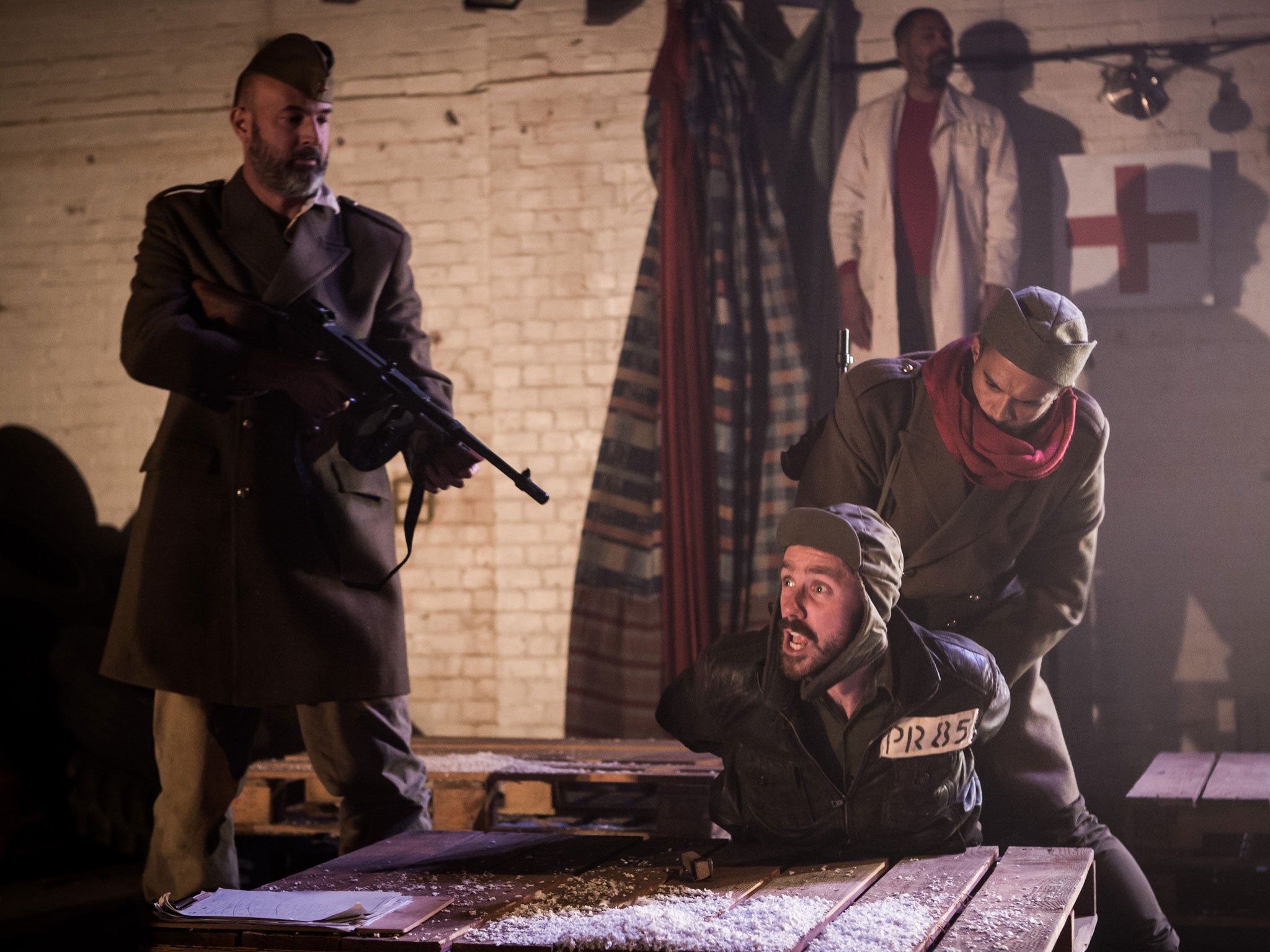Theatre Review: The Love Girl and the Innocent - Southwark Playhouse, London

Solzhenitsyn's play draws on his hellish experience of eight years in the gulags from 1945 and it hasn't been seen in London for some three decades. Given that it has over fifty characters and scenes set in a working foundry, this gap is perhaps not such a puzzle.
Matthew Dunster's stark, searing revival rises to the challenges of the piece with extraordinary resourcefulness. In Anna Fleischle's design, the main auditorium of Southwark Playhouse is stripped back to create a harshly cavernous Stalinist prison camp environment with just planks and wooden pallets, reconfigured for individual locations. and a heap of old tyres that casts a molten inner glow.
The eponymous "innocent" is Nemov (a moving Cian Barry), an army captain who, for some anti-Soviet indiscretion, is shifted straight from the front line to duties as the new works supervisor. His attempts to operate honestly meet with incredulity and derision. "This is Campland... the famous country where ninety-nine men weep while one man laughs. I'd rather be the one who laughs," proclaims Khomich (Ben Lee), the scheming engineer who soon supplants him.
Abrasive, richly idiosyncratic performances from a cast of sixteen highlight the vein of grim comedy in the play's handling of endemic corruption. This starts at the top with Rocky Marshall's jittery, vodka-swilling Commandant who's been threatened with Arctic exile if he does not increase the levels of production. Bureaucratic fiddling, rate-fixing and inhuman sanctions on workers who do not "over-fulfil their quotas" are the order of the day.
Some think that the titular relationship emerges too belatedly in the penultimate act. But this revival demonstrates that, on the principle of deferred gratification, the eventual charge of their connection is all the greater because we have so closely tracked the characters' separate development within the camp's venal hierarchies. Rebecca Oldfield brilliantly veers between high-strung romantic neediness and ground-down realism as Lyuba. An exiled Kulak who was sold to her first husband at the age of fourteen, she's been round the block enough times to know that her love affair with Nemov can survive only if he consents to share her with the doctor (a sleek, bribe-dangling Ben Onwukwe). Such a proposition is anathema to Nemov, whose refusal to compromise is matched by Emily Dobbs's spiritedly scornful Granya, an army sniper who killed her adulterous husband.
Rather as with Janacek's Dostoievski-based opera, From the House of the Dead, though, it's the prison here which is the main protagonist and Dunster's Jagged Fence production - framed by brutal, deeply upsetting episodes of rail transport arrival and departure - brings it to life with a teeming, horrible immediacy.
To 2 November; 020 7407 0234
Join our commenting forum
Join thought-provoking conversations, follow other Independent readers and see their replies
Comments